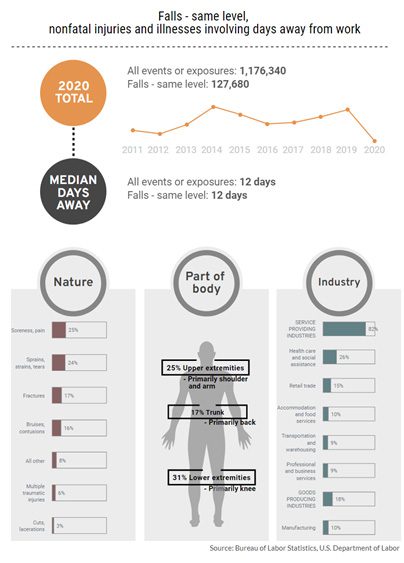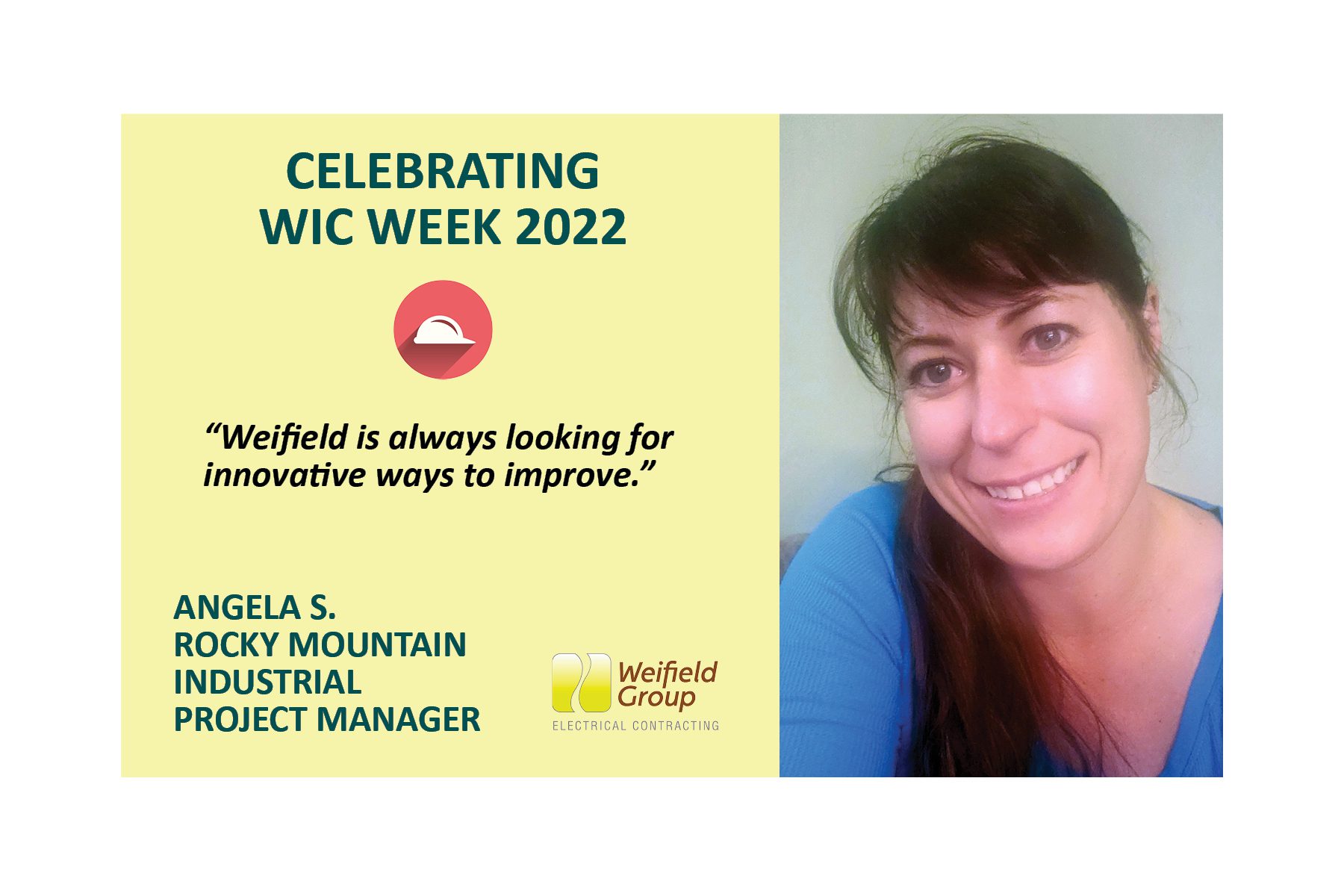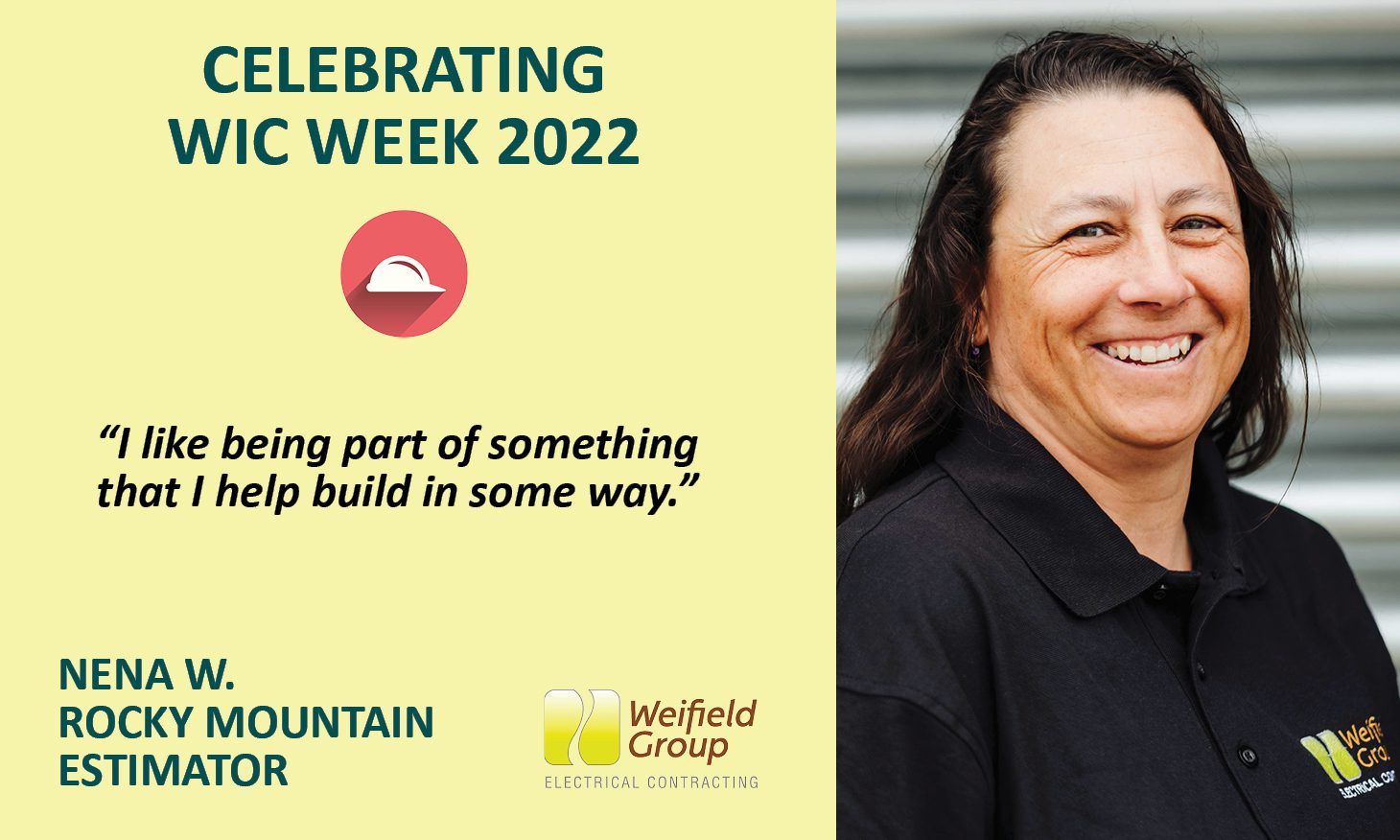Falls Can Be Avoided (National Safety Council – CDC Tips on Preventing Falls)
It may come as a surprise that the second leading cause of injury-related death is falls. For working adults, depending on the industry, falls can be the leading cause of death.
Construction workers are most at risk for fatal falls from height – more than seven times the rate of other industries – but falls can happen anywhere, even at a “desk job.”
Hazards in the Workplace
In 2019, 880 workers died in falls, and 244,000 were injured badly enough to require days off work.
A worker doesn’t have to fall from a high level to suffer fatal injuries.
Falls are 100% Preventable
Whether working from a ladder, roof, or scaffolding, it’s important to plan, assess the risk and use the right equipment. First, determine if working from a height is necessary or if there is another way to do the task safely.
- Discuss the task with coworkers and determine what safety equipment is needed
- Make sure you are properly trained on how to use the equipment
- Scan the work area for potential hazards before starting the job
- Make sure you have level ground to set up the equipment
- If working outside, check the weather forecast; never work in inclement weather
- Use the correct tool for the job, and use it as intended
- Ensure stepladders have a locking device to hold the front and back open
- Always keep two hands and one foot, or two feet and one hand on the ladder when ascending or descending the ladder
- Place a stepladder on a solid surface and never lean it against an unstable surface
- A straight or extension ladder should be 1 foot away from the surface it rests on for every 4 feet of height and extend at least 3 feet over the top edge
- Securely fasten straight and extension ladders to an upper support
- Wear slip-resistant shoes and don’t stand higher than the third rung from the top
- Don’t lean or reach while on a ladder, and have someone support the bottom
- Never use old or damaged equipment; check thoroughly before use
- Keep ladders, walkways, scaffolds, or other work surface clear of foreign debris
Fall Hazards at Home
Are you a weekend warrior or do-it-yourselfer? If you take on home improvement or other weekend projects, it’s important to prepare yourself for physical exertion, especially if you’ve been sedentary through the winter months, and take extra precautions to prevent falls.
Risky projects, like installing siding, gutters, or roofs, are best left to professionals. Saving money isn’t worth risking a debilitating or fatal fall.
At home or at work, many of the same rules apply. When taking on a project:
> Practice all the ladder safety tips mentioned above
> Keep the work area clear of hazards and immediately clean up spills
> Read all instructions and safety precautions on your equipment
> Don’t wear loose clothing that can get caught in equipment
> We tend to think we’re always safe on flat ground, but the thousands of injuries each year tell us otherwise.
> Falls are the #1 cause of death for older adults: fall-proof your home
> Keep floors and surfaces clear of clutter
> Keep file cabinets and desk drawers closed
> Keep electrical and phone cords out of traffic areas
> Install handrails on stairways
> Wear sensible footwear
> Never stand on chairs, tables, or any surface with wheels
> Properly arrange furniture to create open pathways
> Maintain good lighting indoors and out

More than 8 million people were treated in emergency rooms for fall-related injuries in 2019. A fall can end in death or disability in a split second, but with a few simple precautions, you’ll be able to stay safe at home and at work!




